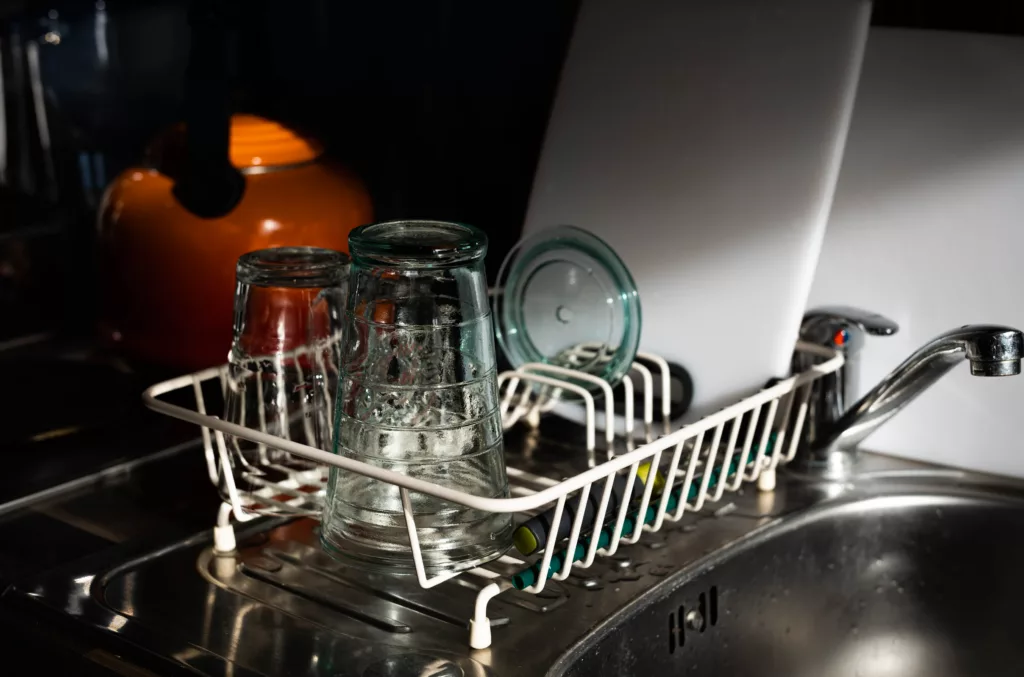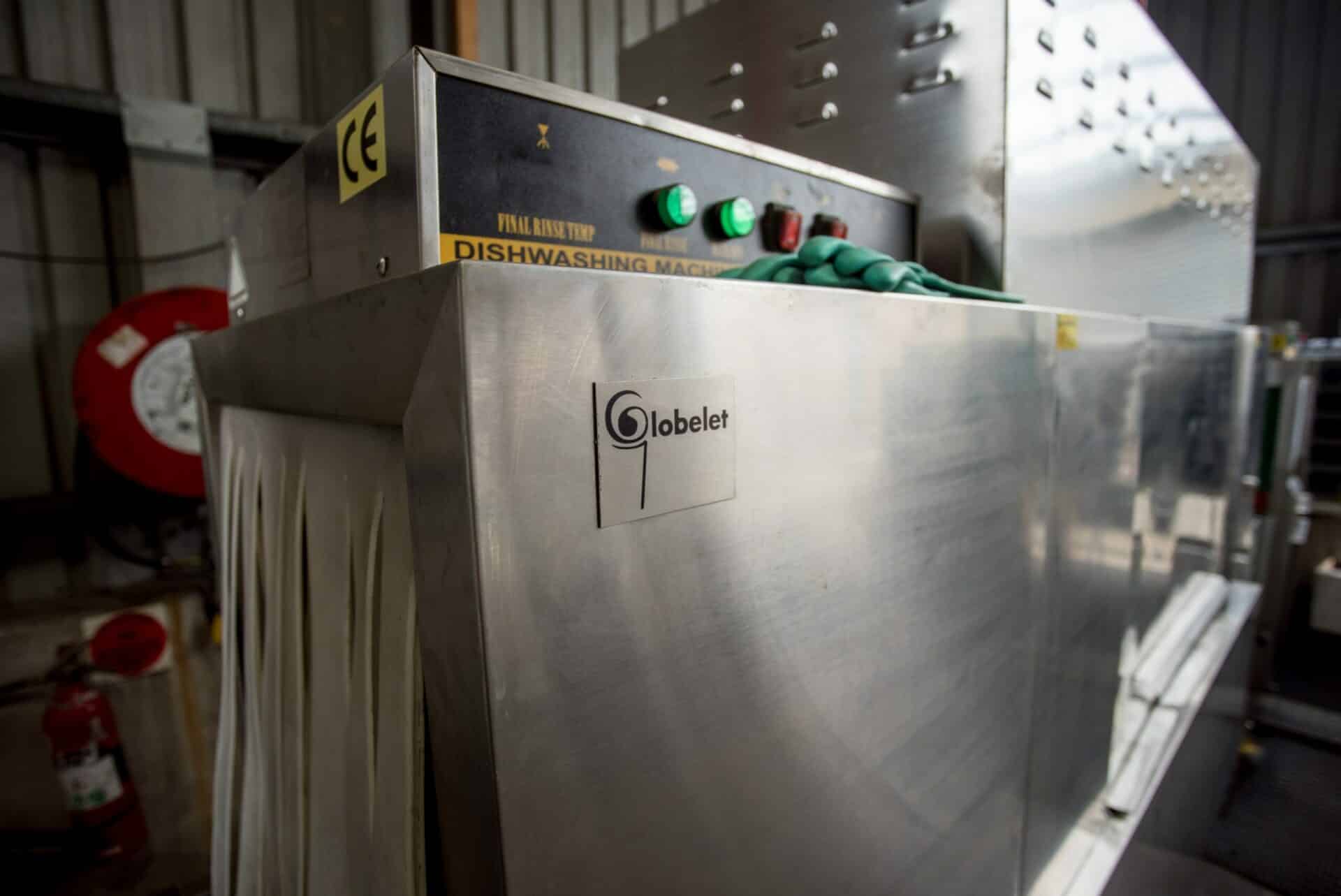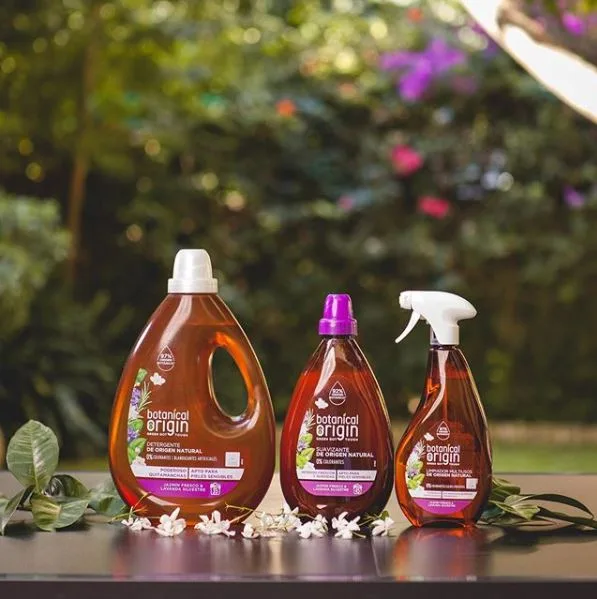The importance of eco-friendly cleaning methods is growing in today’s environmentally aware society. In the United States, the cleaning business is responsible for the production of an astounding 6 billion pounds of polyethylene garbage per year. There would be enough bags and bottles to cover the state of Texas.
Taking homemade dishwasher detergent as a green cleaning saviour, we’ll be exploring the world of environmentally friendly washing. We will discuss how to perform common household tasks in a more sustainable manner in light of rising consumer awareness of their effects on the environment.

Why Choose Homemade Dishwasher Detergent?
Numerous strong arguments exist for using homemade dishwasher detergent. It addresses the serious environmental issues raised by commercial detergents first. These store-bought items frequently contain harsh chemicals, phosphates, as well as synthetic perfumes that, when they are washed down the drain, can have a devastating effect on aquatic ecosystems.
When examining the chemicals found in commercial detergents, health and safety take priority. The environmental impact of homemade treatments is sustainable cleaning lower because they frequently include organic components like vinegar and baking soda.
Several of these items contain corrosive elements that might be damaging to your skin along with the respiratory system. These security worries are eliminated by homemade dishwasher detergent manufactured with easily accessible, non-toxic substances.
Key Ingredients for Homemade Dishwasher Detergent
1. Natural acids
Organic natural acids can be found in large quantities in a variety of foods, including fruits, vegetables, and even some minerals. Since they are acidic, they are essential in cleaning and housekeeping uses. Citric acid, acetic acid (discovered in vinegar), and ascorbic acid (which was discovered in citrus fruits) are just a few of the amazing cleaning, degreasing, along with descaling properties of these acids.
They efficiently eliminate mineral deposits, dissolve grease, take out stains, and neutralise odours when added to cleaning solutions. Natural acids are advantageous additives in homemade dishwasher detergent cleansers because they are not only safe to use but also favourable to the environment, encouraging non-toxic and eco-friendly dishwasher solutions and cleaning techniques. Two examples of natural acids which can be used are:
Citric Acid: Powerful cleaning agents can be made from the white powdered citric acid, which is found in citrus fruits natural cleaning agents. Mineral deposits and hard water stains can be easily removed thanks to its chelating properties. It is a versatile and green cleaning option because it is so effective at degreasing and eliminating tough stains.
White vinegar: The natural acid used in cleaning is white vinegar, which is made from fermented grain alcohol. In addition to dissolving grease and odour-neutralising, it efficiently eliminates mineral accumulation. It’s a cost-effective and environmentally responsible option for a variety of household cleaning jobs, whether used as a standalone cleaner or combined with other treatments.
2. Salts:
Salts, such as kosher salt and Epsom salt, are essential to the effectiveness and safety of the benefits of homemade cleaning products. The advantages of making your own cleaning supplies are numerous since they use substances for safe dishwasher detergent that have less of an impact on the environmental impact of cleaning agents than conventional cleaning solutions. Epsom salts improve cleaning while lowering the need for dangerous chemicals thanks to their water-softening capabilities.

The mild abrasiveness of kosher salt makes it safer to remove residues. By utilizing these organic ingredients in DIY environmental impact cleaning agents you not only ensure a healthier house but also support green cleaning techniques, thereby reducing the negative impacts of conventional cleaning products on the environment. These are two examples of such salts are:
Epsom salts: Epsom salts, which are made up of magnesium as well as sulphate, can be added to several homemade cleaning solutions. They help minimize mineral accumulation, which reduces the requirement for harsh chemicals, while softening water, enhances cleaning effectiveness. Epsom salts are a safe, eco-friendly element that increases the overall efficiency of homemade dishwasher detergents.
Salt kosher: When used in cleaning solutions, the coarse texture of kosher salt functions as a mild abrasive. By eliminating hard water stains, its scrubbing power helps remove tenacious residues from dishes. This multipurpose salt enhances the cleanliness and safety of homemade dishwasher detergents in a secure and efficient manner.
3. Essential oils for fragrance and antibacterial properties
The inclusion of essential oils in DIY cleaning solutions is a noteworthy advancement in the fields of green cleaning and conscious consumption. These organic extracts not only give your cleaning products lovely scents, but they also have antibacterial characteristics.
Tea tree, lavender, eucalyptus, and lemon essential oils keep your home smelling fresh and assist in battling dangerous bacteria without the need for harsh chemicals.
Conscious consumers may lessen their environmental impact, improve the quality of their living environment, support environmentally friendly cleaning methods, and contribute to a cleaner, greener future for all by choosing these eco-friendly substitutes.
4. Natural cleaning agents
Baking soda along washing soda are two examples of natural cleaning products that excel when it comes to environmental protection. Scrubbing, deodorizing, and stain removal are all made easier by the multipurpose white powder known as baking soda.
Easily removes thick grease and stains is washing soda, a stronger alkaline substance developed from baking soda. Both ingredients are safe for your family, and the environment, and biodegrade after use. They are also non-toxic and free of hazardous chemicals.
The environmental effect of conventional cleaning chemicals is decreased by using these natural wonders, which promotes a cleaner, greener future while also producing sparkling results that are in line with consumer preferences that are environmentally conscientious. For example, these natural cleaning agents can be used:
- Baking Soda:
The common household item baking soda is a mild but powerful natural cleaner. Due to its light abrasiveness, it is perfect for cleaning surfaces, removing stains, and getting rid of odours. It’s a flexible, safe, and affordable solution for cleaning that respects the environment.
- Washing Soda:
A more effective cleanser than baking soda is washing soda, which is related to it. Grease, dirt, and difficult stains may all be cut through with ease. This alkaline substance is a potent addition to DIY cleaning solutions, enhancing their efficacy while still being environmentally friendly and safe to use.

Benefits of Each Ingredient
1. Natural acids
Natural acids like citric acid and vinegar are hidden heroes when it comes to cleaning. Vinegar cuts through grease, and the chelating characteristics of citrus acids help to dissolve mineral deposits. These all-natural cleaners are efficient and less harmful to the environment than harsh chemicals.
Due to their biodegradability and safety, they are essential components of sustainable, green cleaning methods. You may up your cleaning game while reducing damage to the environment by comprehending how each natural acid functions and embracing their environmental benefits.
2. Salts
Salts like kosher salt and Epsom salt add a natural touch to your cleaning supplies. Epsom salt’s water-softening qualities make cleaning easier and require fewer harsh chemicals. The mild abrasiveness of kosher salt aids in the removal of residues.
Both salts support efficient cleaning while supporting decisions that are environmentally friendly, making the cleaning process safer for your house and the environment. Understanding the function of salts during cleaning can fundamentally alter how you approach your housework, fostering sustainability and environmentally friendly living.

3. Essential oils for fragrance and antibacterial properties
Nature’s multifunctional gems include essential oils like eucalyptus, tea tree, and lavender. They have antimicrobial characteristics while also giving your cleaning products lovely smells. Learn how these oils can eliminate hazardous bacteria without using harsh chemicals while also generating a fresh atmosphere. Explore the world of essential oils to improve your eco-friendly cleaning efforts and promote cleaners that are healthy for the environment.
4. Natural cleaning agents
Investigate the cleaning potential of natural products like vinegar and baking soda. Without using harsh chemicals, these environmentally friendly options effectively remove dirt, stains, and odours. Learn how using these products can make your house safer and cleaner while lowering your environmental impact through eco-friendly cleaning methods.
Simple Recipes to Try
Two simple yet efficient recipes are provided for everyone, whether you’re a rookie cleaner or an eco-aware enthusiast wishing to up your green cleaning game.
1. Basic Recipe for Beginners:
Start with a simple yet effective recipe if you’re new to making your own homemade dishwasher detergent. Add two tablespoons each of baking soda and washing soda to a mixture, then seal the container tightly. For every load, put one tablespoon of detergent in the dishwasher. This mild mixture is healthy for the environment and your family, and it will thoroughly clean your dishes, get rid of stains, and leave them gleaming.
2. Advanced Recipe for Enhanced Cleaning:
Consider this sophisticated recipe if you want to take your homemade dishwasher detergent to the next level. Washing soda, citric acid, and half a cup of kosher salt should all be combined. In a container that can be sealed from the air, thoroughly combine. Per load, use two tablespoons. Kosher salt’s abrasive effect and the potent cleaning capabilities of citric acid work together to scour surfaces more thoroughly and reduce mineral buildup.

Safety and Storage Tips
Maintaining the efficacy and safety of homemade dishwasher detergent requires proper storage. Purchase airtight containers, such as Mason jars or plastic bags with sealable lids, to begin with. These shield it from the elements, which might degrade the detergent’s performance by causing it to clump or lose its cleaning ability.
Additionally, keep your detergent out of direct sunlight and other sources of heat in a dry, cold location. It’s crucial to shield your detergent from heat and moisture because they can both lead to problems. If various family members will be handling the container, it is crucial to clearly label it.
Avoiding mixing your own detergent with bleach or any other product containing chlorine is essential for safety. Hazardous vapours could be produced by this combination. Avoid combining your own dishwashing liquid with brand-name liquid detergent. The interactions between the various formulations could be poor, which could reduce the effectiveness of cleaning.
Comparing Homemade vs. Store-Bought Detergents
Making your own homemade dishwasher detergent versus buying it at the shop is a crucial decision in terms of eco-friendly household tasks. Cost research suggests that using homemade detergents, frequently using inexpensive materials like vinegar and baking soda, can drastically save your cleaning costs. These natural chemicals not only clean well but also encourage zero-waste dishwashing, so they are a wonderful fit for natural kitchen solutions. Financial freedom.
homemade dishwasher detergent triumphs in the green race when it comes to environmental impact. They reduce the pollution as well as plastic waste produced by their commercial equivalents by using natural ingredients and fewer harsh chemicals. homemade dishwasher detergents are a great option for environmentally concerned consumers looking for sustainable cleaning solutions because of their ability to be created with minimal environmental impact.
In conclusion, using homemade dishwasher cleansers is an economical and ethical choice that promotes eco-friendly household tasks, zero-waste dishwashing, and natural kitchen solutions, ultimately leading to a cleaner, greener earth.

Conclusion
In conclusion, adopting sustainable and mindful cleaning practices is advantageous for both our houses and the environment. The benefits of eco-friendly decisions are shown by a comparison of homemade dishwasher detergent and store-bought detergents. I challenge readers to attempt creating their own detergent in order to make a difference in a cleaner, greener environment while also benefiting from the efficiency and cost savings that come with it. A minor adjustment has the potential to have a big impact over time.
If you found this article to be meaningful, explore more from our Home & Lifestyle section to help you on your path towards a sustainable lifestyle!









